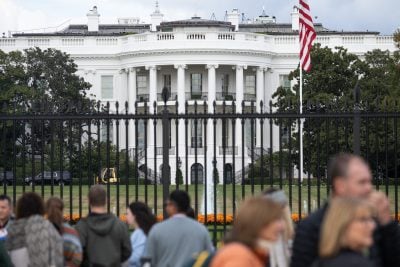Alassane Ouattara has been provisionally declared president of Côte d’Ivoire for a third consecutive term, despite an opposition boycott and pre-election clashes that led to at least 30 deaths.
Provisional results released by the electoral commission on Tuesday said that Ouattara won 94.27% of the vote with a turnout of 53.9%. The results can still be challenged by opponents submitting objections while the constitutional council continues to verify the votes.
Opposition candidates Henri Konan Bedie, the country’s former president, and Pascal Affi N’Guessan, the former prime minister, refused to accept the results and announced the creation of a “transitional government” on Monday.
The move has raised the prospect of a return to the 2010-2011 electoral crisis, when disputed results led to four months of instability and around 3,000 deaths.
Officials said at least five people died in election-related violence during the course of the October 31 vote, while tensions continue to run high.
Opposition figures say the 78-year old’s third term violates the constitution’s two-term limit, pointing to the president’s initial decision to step down before his chosen successor, Prime Minister Amadou Gon Coulibaly, suddenly died.
‘More of the same’ for investors
The president is credited with boosting GDP by an average of 8% each year between 2012 and 2019, and tripling foreign direct investment in the world’s top cocoa producer over his two terms to $1bn per annum by December 2019.
However, the IMF predicts real GDP growth will slump to 1.8% this year under the “significant” socio-economic impact of the coronavirus pandemic. The fund said that a swift policy response and the removal of confinement measures, plus strong fundamentals and a diversified economy, meant that growth was more resilient than elsewhere.
In October Ouattara won supporters by stabilising cocoa prices in coordination with Ghana to tackle poverty among farmers who were at the mercy of shifts in supply patterns.
“I think external debt investors like “more of the same” when GDP has recovered so well from the disaster of the 2000s,” said Charlie Robertson, global chief economist at Renaissance Capital, while noting that the election result is not yet finalised.
Virág Fórizs, Africa economist at Capital Economics, said: “At this point it’s probably too early to say that the clouds hanging over Ivory Coast’s economy due to uncertainty surrounding the elections have cleared.”
Want to continue reading? Subscribe today.
You've read all your free articles for this month! Subscribe now to enjoy full access to our content.
Digital Monthly
£8.00 / month
Receive full unlimited access to our articles, opinions, podcasts and more.
Digital Yearly
£70.00 / year
Our best value offer - save £26 and gain access to all of our digital content for an entire year!
 Sign in with Google
Sign in with Google 



